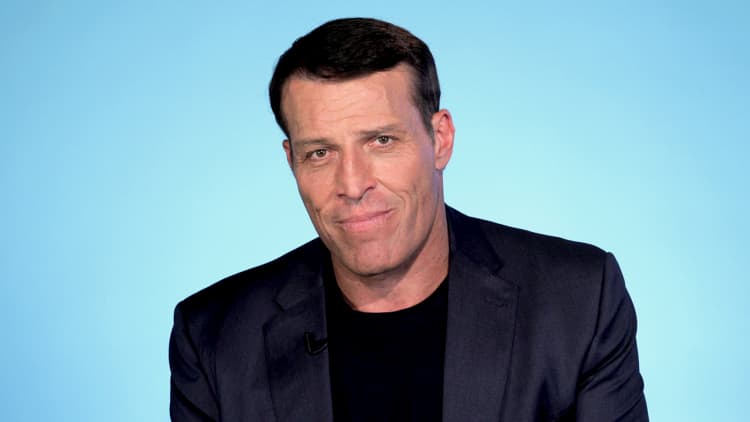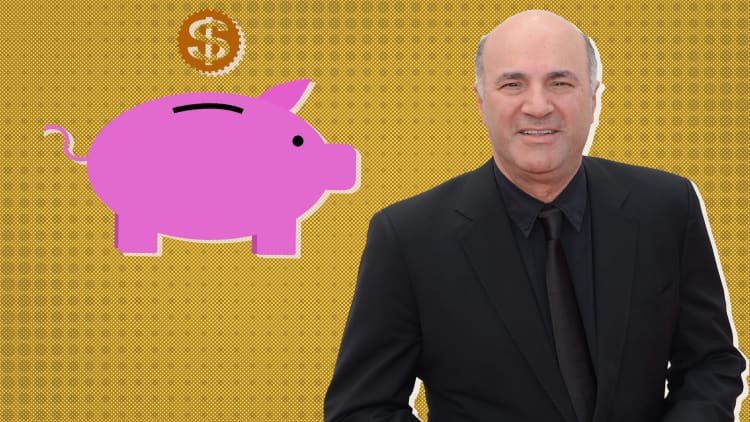Chances are, you've heard of the money term "compound interest," but do you know how it really works?
If not, you're in the majority: 69 percent of Americans don't understand it. That's according to ValuePenguin, which asked 2,000 Americans if they could define key financial terms like credit score, net worth and compound interest, and shared the results with CNBC Make It.
It's an important concept to grasp. After all, compound interest can cause your wealth to snowball and help you save hundreds of thousands or even millions of dollars.
What is compound interest?
Compound interest makes a sum of money grow at a faster rate than simple interest, because in addition to earning returns on the money you invest, you also earn returns on those returns at the end of every compounding period, which could be daily, monthly, quarterly or annually.
That's why compound interest causes your wealth grow faster. It's also why you don't have to put away as much money to reach your goals.
Consider the following charts from NerdWallet. Each one shows how much money you'd need to set aside to have $1 million saved by the time you're 67. It assumes you start with zero dollars and also assumes various average annual investment returns.
The charts looks significantly different depending on what age you start saving.
Here's what the path to $1 million looks like if you start saving at age 25:
If you start saving at age 30, things get a little trickier:
Here's another compound interest chart, which The New York Times columnist and author Ron Lieber says changed his life.
Published in 1994 by USAA, it shows how much money you'll accumulate over time if you invest $250 a month starting at different ages. It assumes an 8 percent average annual investment return.
The chart shows how much money you'll accumulate over time if you invest $250 a month starting at different ages. It assumes an 8 percent average annual investment return.
If you start at age:
25: You'll accumulate $878,570 by age 65
35: You'll accumulate $375,073 by age 65
45: You'll accumulate $148,236 by age 65
Compound interest can also work against you when it comes to loans: It means that every year or month, whatever the frequency specific to your loan, the amount you have to repay gets bigger.
So the longer it takes to pay off your loan, the more you'll owe in interest.
For example, say you have a five-year loan of $20,000 with an interest rate of 5 percent that compounds annually. A compound interest calculator shows that if you pay it off in three years, you'll pay $3,153 in interest. But if you pay it off over five years, you'll owe much more: $5,526.
How to use compound interest to your advantage
The sooner you invest your money, the more you'll benefit from compound interest. So where should you invest? The simplest starting point is to contribute to your employer's 401(k) plan, a tax-advantaged retirement savings account that many companies offer, or other retirement savings accounts, such as a Roth IRA or traditional IRA.
Many experts, including Warren Buffett, recommend investing in low-cost index funds, which allow you to own a small piece of many different companies. The S&P 500, for example, is a fund that holds stocks for the 500 largest companies in the U.S., including Apple, Google, Exxon and Johnson & Johnson.
You can also look into robo-advisors, such as Betterment, Wealthsimple and Wealthfront. These are automated investing services that use an algorithm to determine the kind of portfolio that's right for your age, risk tolerance and time horizon.
No matter how you choose to invest, the most important step is to open at least one account and start contributing to it consistently to take full advantage of compound interest. The earlier you start, the better off you'll be.
Don't miss: Money expert says this simple chart from 1994 changed his life
Like this story? Subscribe to CNBC Make It on YouTube!




